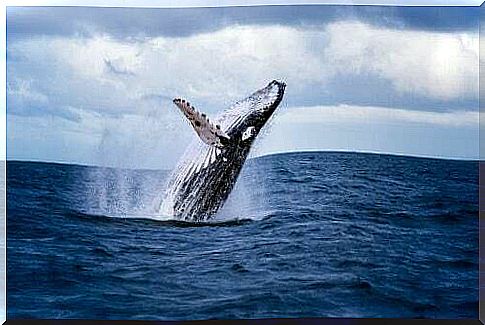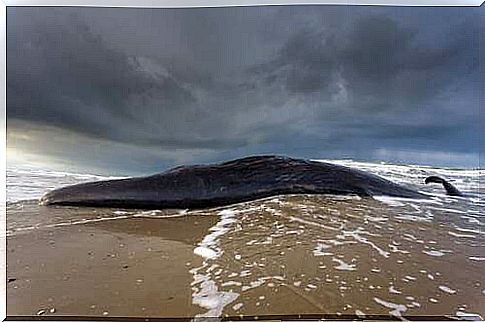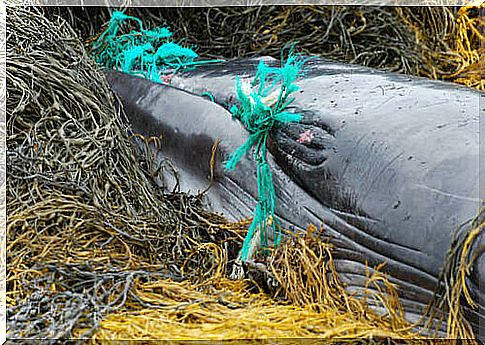A Whale Saved From A Terrible Death

Beaching of whales and many other marine animals is becoming increasingly common. In most cases, the animals arrive dead on the banks. Fortunately, a whale was rescued off the coast of Hartlepool, England.
How was this minke whale, also called the minke whale ( Balaenoptera acutorostrata ), saved ? Prompt and coordinated action between the Coast Guard and the Marine Species Rescue Unit was key to successfully rescuing this whale.
A whale saved from a terrible death
Marine animals approach the coasts for various reasons: food, warmer waters, disorientation, etc. However, they all need to return to deeper water to survive. Unfortunately, however, this is not always possible.
On the morning of August 2, around 11:00, very close to the Hartlepool coast, a minke whale appeared in serious danger of being stranded. The coast guard, which spotted the animal for the first time, then alerted British Divers Marine Life Rescue (BDMLR), a body specializing in cetacean rescue.
Once there, the coast guard looked after the animal together with a team of veterinary doctors specializing in marine mammals. The vets conducted a thorough check to make sure the whale could be released into deeper water without being relocated to a recovery center.
The BDMLR tried to keep the animal close to the coast in order to monitor it and verify that its vital signs were optimal. But the whale, as soon as it could, changed direction and headed for deeper waters.

Thus, the whale was saved. Otherwise, it is very likely that due to fatigue or disorientation she would never have been able to return to the abyss.
Why do whales run aground?
Whales often run aground on beaches, mainly due to migration routes. However, the main cause of these unpleasant incidents today is human activities.
When a whale is very ill or has already died, it is likely to be washed ashore by currents and tides. The same thing happens with seriously injured animals, which losing strength cannot swim where they want or follow the group.
On the other hand, a whale could also run aground due to navigation problems. Whales, like other cetaceans, orient themselves thanks to echolocation.
After a severe thunderstorm or in shallow areas where the sand is so fine that it floats on the water, echolocation may fail and animals may be disoriented.
Similarly, loud noises from ships on the high seas, such as giant underwater pipelines and oil tankers crossing the seas, can also interfere with sophisticated whale radar.

One of the most recurring problems is also fishing nets, active or abandoned. These wastes are real traps that can completely immobilize the whale or cause serious injury.
The reasons that brought the whale near Hartlepool’s shores are unknown. Either way, it appears that the cetacean was not injured, so it is thought that it simply got lost.
What to do if you find a stranded marine animal
Marine animals such as cetaceans, turtles and sharks, among other species, are fortunately protected in many countries around the world. If unfortunately you come across a beached animal, the first thing to do is to notify the competent authorities.
While you wait for their arrival on the spot, you could try, very cautiously and quietly, to keep the animal hydrated, in the case of cetaceans. In the case of reptiles, it is best to monitor them from a safe distance.
In no case should you try to put the animal back in the water, because the fact that it has run aground is probably due to some problem and it is better that you visit it as a veterinarian.
If a dead animal is found, do not touch it and notify the authorities immediately. An examination such as necropsy will provide essential data for monitoring the species and will help identify factors that may threaten its survival.
The case of the whale rescued from a terrible death is a perfect example of how to behave in such cases. Thanks to the intervention of the competent authorities, this cetacean survived and is once again free to swim.









